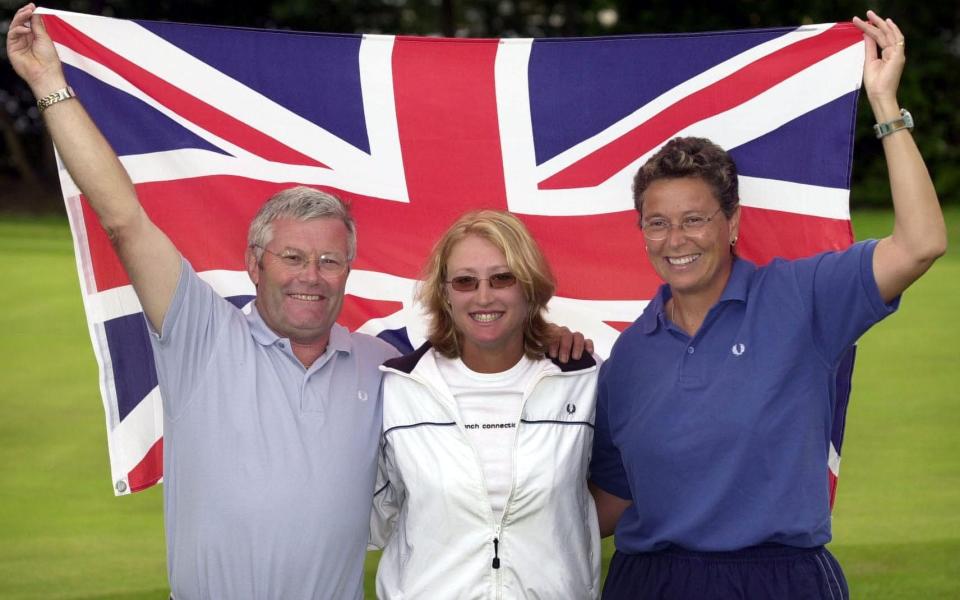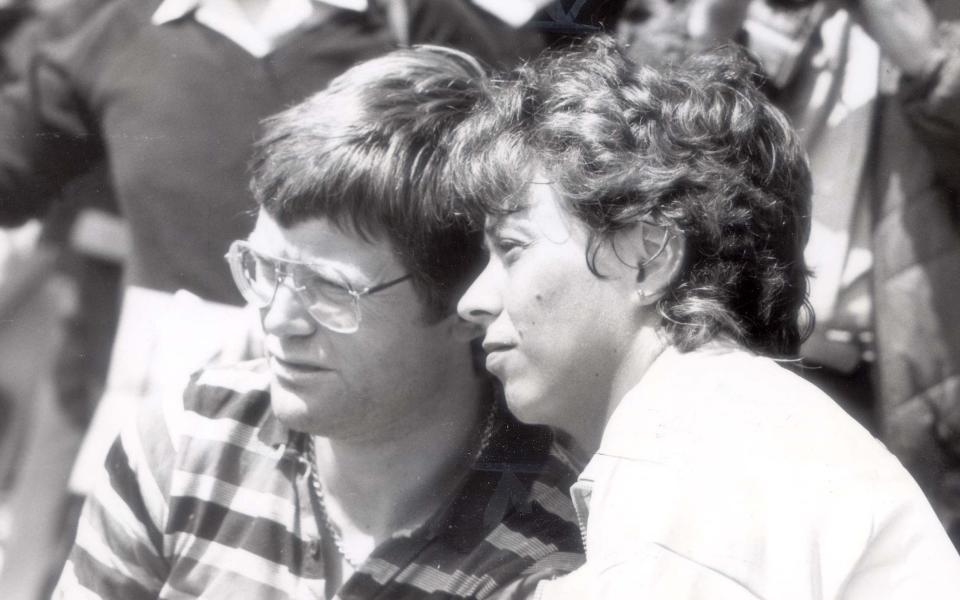Alan Jones, who coached more than 30 players to Wimbledon, dies aged 75

British tennis has lost one of its most influential figures following the death of long-serving coach Alan Jones after a short illness, aged 75.
While Jones is best-known for turning Jo Durie into a top-five player, his remarkable body of work also extended to guiding other high-profile names such as Jeremy Bates, Anne Keothavong and Elena Baltacha.
Durie once sat down with Jones and went through his whole career, calculating that he had coached more than 30 players who appeared at Wimbledon.
Jones’s no-nonsense style also fed through into the next generation of coaches, so that the likes of Bates, David Felgate and James Trotman – as well as Jones’s own son Ryan – continue to draw on his methods today. A strong rather than world-class player himself, Jones represented Middlesex for 21 years. But it is his contribution to others that will be remembered.
Billie Jean King was among those expressing their sorrow on social media, writing: “Our sport has lost a passionate and dedicated coach. I always looked forward to catching up with Alan at Wimbledon.”
Scott Lloyd, LTA Chief Executive said: “The news of Alan’s passing has filled the tennis community with deep sadness. He was one of the pre-eminent coaches of our sport for well over half a century, coaching numerous British No 1’s, always with a keen eye on the future generations. Anyone who met him was left in no doubt about his passion for the game and his desire to develop British players for success at the very top of the sport. He will be sorely missed.”
According to Dave Sammel, a leading British coach, Jones’s approach revolved around such straightforward solutions as “Lots of two-on-ones” – a drill pitting the chosen player against two sparring partners – “combined with consistency drills like hitting 100 balls inside the court in a row.
“He was very much about creating the foundation,” Sammel added, “so that his players became very solid. And of course, with the two-on-ones, his drills were brutal on the physical side.”
‘Alan made you a better person, let alone a better tennis player’
Durie began working with Jones when she was 18 and reached her peak ranking of world No 5 six years later. They continued to be close friends after her retirement in 1995, often coaching together out of Hazelwood Tennis Club or nearby Northwood. Both were fond of saying how lucky they had been to originally meet each other in the late 1970s.
Even until last year, the annual British Tennis Journalists Association lunch at the All England Club would always find Durie and Jones sitting together, holding forth to their table with gusto and good humour. In 2017, Jones was among those celebrated by the association, receiving a special award for his huge, 50-year-plus contribution to the British game.
“We were all so incredibly lucky to know Alan and have him as a friend,” Durie told Telegraph Sport. “He had such a passion for tennis and life and learning. He loved talking to people and exchanging ideas. As a coach, he had a way of seeing right into you. He knew what you were thinking and how your fears were holding you back, and somehow he would help you to overcome them. Alan made you a better person, let alone a better tennis player.
“He never let people get away with bull---- excuses,” Durie added. “But what a lot of people didn’t see was how caring and understanding he was, and absolutely there for you when you needed him.”

Based in Enfield, north London, Jones set up his own academy at Hazelwood in 2003 with the help of French Connection chief executive Stephen Marks. Telegraph Sport then described it as “A scaled-down version of Nick Bolletieri’s Academy in Florida.”
Yet this was far from being his first rodeo. Felgate – the former Lawn Tennis Association performance director who was Tim Henman’s primary coach – had first come across Jones as an aspiring 11-year-old.
“In the 1970s, there were three coaches that people went to,” Felgate recalled. “Dudley Georgeson, Shirley Brasher and Alan. But it was Alan who probably did most to develop the modern ‘academy’ model. Working for the LTA at around that time, he had an A-squad and a B-squad, with probably six players in each.
“Alan wasn’t afraid to make life uncomfortable: that’s how he improved his players. And he could make the authorities uncomfortable too, because he spoke his mind. But he was always straight with you, and had the best interests of the British game at heart.”
Writing in 2021, Jones said: “I’m as soft as old rope away from a court. But get me around tennis and I’m tough.”
